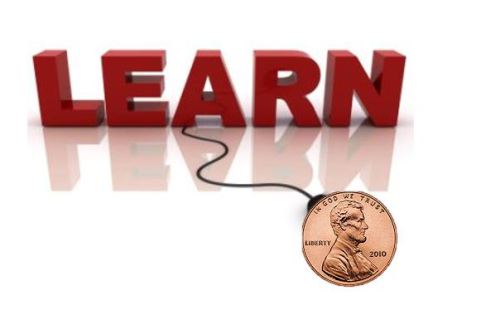Ten Resources and Next Steps: Education and Poverty….ASCD 2016

Tools and ideas to transform education. Sign up below.
You are now subscribed
Your newsletter sign-up was successful

Ten Resources and Next Steps: Education and Poverty….ASCD 2016
The people at ASCD offered me the opportunity to join their press core for this year’s conference. I have long been impressed with the wonderful opportunities and resources ASCD provides the learning community. I have also been a ongoing attendee at various educational technology and PBL conferences across the nation. I viewed this as an opportunity to visit one of the premier educational conferences with that edtech and PBL filter. I do hope you enjoy my journey and the ideas and resources I provide for attendees, and those that could not make it.
The Morning Shuttle Ride – It was a Saturday morning, a day teachers usually enjoy a break from a full week of providing learning opportunities for their students. This was not the case as I jumped on a shuttle bus filled with excited educators having conversations about their anticipation of learning even more ways to engage their students on their journey of learning. On this Saturday thousands of teacher would be collaborating and communicating with each other. They would be finding ways to move their students toward real learning and success. Yes, it was a weekend and possibly even the first day of a spring break. I enjoyed that ride to the convention center as I heard voices of dedication and enthusiasm. We were all on a journey to facilitate student success!
The Opening Keynote… The Power of One… Manny Scott
I could see the excitement as I walked to a keynote session with thousands of educators. How could the crowd ever get more excited, engaged, and passionate? I was about to find out! Manny Scott is an original Freedom Writer, whose story is told in the 2007 movie, Freedom Writers. He was about to share his amazing story on poverty and education with a room that became engagingly silent. Scott used his unique gift of connecting and holding the attention of the audience while providing an unlimited supply of energy. The driving question of the morning was, “How do you reach people that are unreachable?” This is a question that is relevant to every classroom across the nation. It especially strikes a chord with teachers that work with students of poverty. Scott was a student of poverty himself, and reminded the educators, “Poverty is not the lack of money, it is the lack of people that can influence your life in a positive way.” As Scott continued to tell his story and provide endless inquiry, it was evident through his reflections that it is people that make the difference in the lives of students!
As I listened to Scott’s story of human need for connection, I thought of all the initiatives districts are constantly rolling out. Yet, it isn’t a computer, a state standard, a learning target, or even an authentic project that really makes the difference in our children’s lives. It is caring and invested people that influence the life of a student. Scott reiterated that these life changing individuals are more than dedicated teachers. Other important contributors include coaches, mentors, administrators, and those important support people. Scott told the story of a lunch lady who stated that Scott would be great someday… because she could see it in his eyes. Here was a women that may have never read a page on formative assessment, but practiced it from a intuitive and caring heart. I have written for years about the needed pedagogy before technology implementation, and the building of culture before PBL. Scott reminded all of us that real teaching is based on forming authentic relationships. Perhaps Scott’s best advice was, “become a student of your students.” This is something he learned from Erin Gruwell, an amazing English teacher that helped change his life and set the stage for the Freedom Writers.
As Scott finished he pleaded with the audience to start where their students were. He emphasized, “Don’t lower standards… instead change methods to bring them up to the high standards.” He emphasized that it is an educators job to help students find their gifts. It is these precious gifts that will lead them to amazing success and happiness! Scott closed with a powerful statement that led to a standing ovation, “Even on your worst day, you might be someone who provides a child with their best hope, or even their last chance”. Wow… imagine what we can do on our average or best day!
Tools and ideas to transform education. Sign up below.
As you reflect on this topic, I have provided some links below for you to further understand and sustain this important message involving poverty and education. If you did not attend… then take a moment to learn. If you did attend … then keep on learning. Please note that I have brought technology and PBL into this conversation. I did not want to forget that important filter!
Ten Resource Links to Supplement Learning and Reflection on Poverty and Education
Freedom Writers Foundation -The mission of the Freedom Writers Foundation is to be an advocate for all students and teachers by providing tools that facilitate student-centered learning, improve overall academic performance, and increase teacher retention.
Freedom Writers Movie – Visit Common Sense Media to learn more about this 2007 movie based on a true story. The focus of this film involves a young teacher who inspires her class of at-risk students to learn tolerance, apply themselves, and pursue education beyond high school.
Manuel Scott ASCD – Read more about Manny Scott from this page hosted at ASCD. You will enjoy finding out more.
Teaching with Poverty in Mind – Here you will find a Study Guide for Teaching with Poverty in Mind: What Being Poor Does to Kids’ Brains and What Schools Can Do About It.
Leading Learning for Children From Poverty – Article from AMLE Magazine which provided an emphasis on students in the middle school.
Five Ways To Help Students Affected By Generational Poverty – Edutopia supplies some thoughts and reflection on working with students from poverty.
Nine Powerful Practices – Explore these nine strategies to help raise the achievement of students living in poverty from ASCD magazine.
Power Up: Helping Close the Digital Divide – I thought it was important to bring in technology to the conversation. Examine this ASCD article that explores closing this growing gap in education.
Why is it so Hard to Close the Digital Divide in High Poverty Schools? – Take a look at this NBC news article and video to learn more about the technology digital divide.
Can PBL Help Pave the Way to College Success? – Examine the impacts of PBL on students in high poverty populations.
The Stage was Set – As I left the keynote I had a new sense of urgency, along with the needed energy that had been created in the room. I could see it in the other attendees as they had the glow of a wonderful mission in their eyes. The relationships we build and the cultural climate we create are important with all students. It is only after this has been established that educators can amplify learning with technology and promote student centered classrooms with PBL. I am now ready to discover other possibilities to bring it all together. What a wonderful way to start a conference. I was one of thousands of educators in this ASCD community of learners ready to take another step. What an exciting place to be!
cross-posted at 21centuryedtech.wordpress.com
Michael Gorman oversees one-to-one laptop programs and digital professional development for Southwest Allen County Schools near Fort Wayne, Indiana. He is a consultant for Discovery Education, ISTE, My Big Campus, and November Learning and is on the National Faculty for The Buck Institute for Education. His awards include district Teacher of the Year, Indiana STEM Educator of the Year and Microsoft’s 365 Global Education Hero. Read more at 21centuryedtech.wordpress.com.
